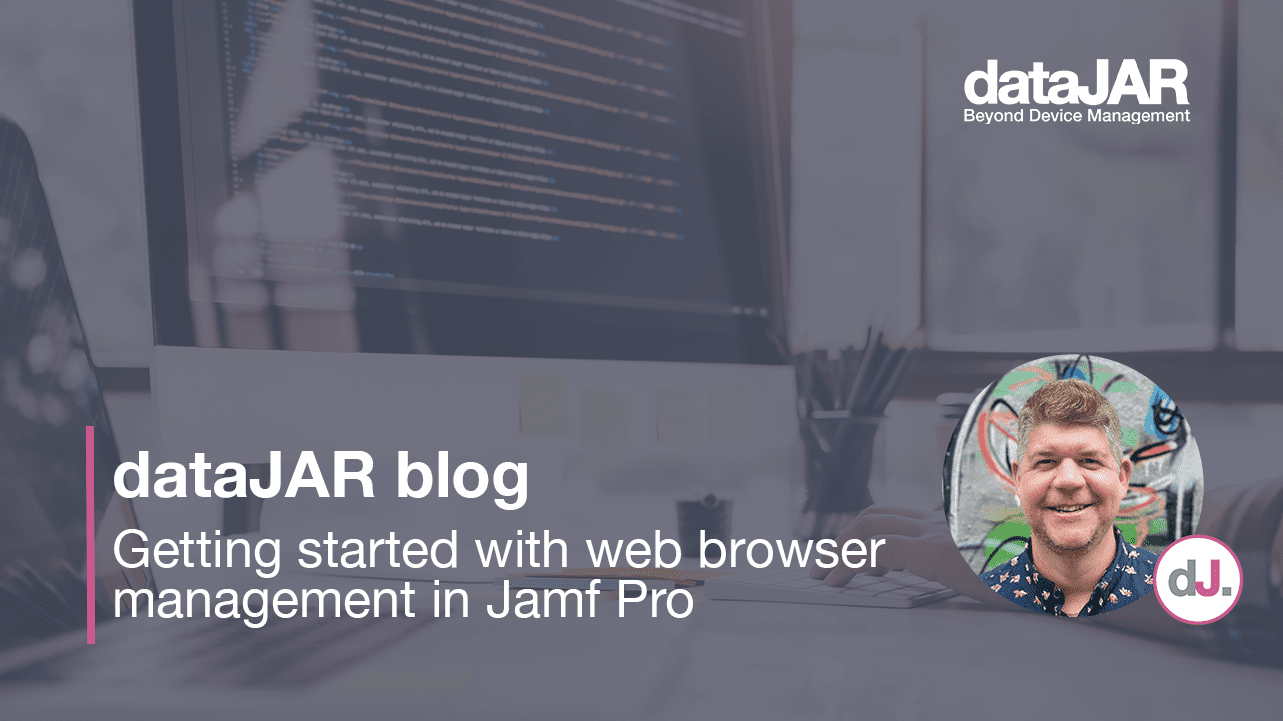Let’s talk mental health

For many years, mental health was treated as a ‘disease’ that had to be hidden – few felt comfortable talking about it. More recently, particularly since the pandemic, the conversation around mental health has been pushed into the spotlight. Many more people, including celebrities, are speaking up and sharing their experiences, removing the shame previously associated with the subject and encouraging others to seek help.
“95% of employees call in sick with stress, giving a different reason.”
Why do we want to talk about it now at dataJAR?
Mental health problems will affect everyone at some point in their life. As a fast-growing company, we strive to provide a comfortable and supportive environment for all dataJAR employees. We are all human and, by encouraging staff to share their struggles, we can help with their first steps to wellness.
Two dataJAR employees, James Penning, lead services engineer, and Petra Marmaros, senior marketing executive, were willing to share their experiences regarding mental health.
The interview
Q1. Despite the subject of mental health now being widely discussed, why do you think some still find it difficult to admit they are struggling in the workplace?
James: I believe there is still a fear of appearing weak, or that maybe if you speak up you might not get that promotion or pay award. Mental health can be a private matter, yet making your colleagues aware of your struggles not only helps them better understand you, it helps build more authentic working relationships. Being honest with your line manager can also greatly benefit the relationship between you, enabling them to tailor the support you need, helping you succeed rather than suffer in silence.
Petra: I agree with James. I used to think I was strong enough, that I could solve such issues alone, quietly, as an adult. Days or even weeks later, I would start to panic, wondering whether to admit I was struggling or just cry on my own in the toilets. What if others don’t think this is a big issue? What if they don’t trust me to do my work any more? What if I ruin my whole career and lose my job? I am sure these doubts are familiar to others. It sounds extreme but once you are in this mindset, it is hard to come out of it – but it is not impossible. When I started at dataJAR I promised myself I would be more open about my mental health, which was the best thing I have ever done for my wellbeing.
Q2. What are some of the misconceptions around mental health?
James: I think this is a perception issue. You could have two people in a room who both are suffering, one is open about it, the other is not – and neither might understand why the other person is behaving that way. But everyone is different and a key theme around mental health is acceptance. Another common misconception is thinking that, just because you feel OK, everyone else you work with is OK too.
Q3. How do you think these misconceptions could impact someone who finds it hard to be honest about their feelings at work?
James: Not opening up about your mental health because you fear the reaction you might receive can cause you to become quite insular. Once you are honest with yourself, it becomes easier to start trusting others, but it is also the responsibility of everyone in a team to check in with colleagues if they are concerned for someone’s wellbeing. Representation matters.
“The oldest and strongest emotion of mankind is fear, and the oldest and strongest kind of fear is fear of the unknown.” – H. P. Lovecraft.
Petra: Misconceptions around mental health can be so damaging to an already fragile mind. When I was at my lowest, believing people might think I was not able to work, that I was weak or that my poor mental health was as a result of character flaws just made things worse. Fearing this reaction made me consider calling in sick regularly, or even quitting – but that was not an option so I took the step to get professional help.
Q4. What can cause mental health issues at work?
Petra: Aside from personal/family issues, it makes things harder when you are not heard or appreciated by the company you work hard for.
The increasing cost of living also puts added pressure on and, if you are in a job where you cannot ask for help, it makes it more difficult to ‘survive’ the working day. Feeling able to talk to a colleague or manager about your worries can make a big difference.
James: There are a multitude of reasons a person’s mental health can be affected at work. Sometimes an individual might not even be aware they are suffering and some are predisposed to the condition, regardless of external factors.
Mental health issues also manifest in different ways from person to person. For example, in the case of bereavement, no two grieving processes are the same. It is hard to say how each of us might react to a situation and the key is to accept and try to understand the root cause where possible.
Q5. What are the signs someone is struggling and how can you help?
Petra: There are so many different signs, everybody deals with mental health issues in their own way. But for me, there was no sign at all. I was always the friendly, happy colleague who would cheer everyone up. Look out for your colleagues who always seem OK.
When you start to feel on edge or tired all the time, with no motivation to get up or see your loved ones, then you know something is not right. I have been there, constantly feeling I am a failure. Time alone will not help as sometimes things just get worse. Talk to someone you trust first and try to find a way to make yourself better. Some might start eating healthier, do more exercise or change their self-care routine, but the only thing that helps me is when I talk about my problems.
James: For me, the most useful thing to do is try to identify my triggers, although this is easier said than done. I have felt fine in the past, thought everything was amazing in the world, yet friends and colleagues have asked if I was OK.
That said, not everyone shows how they are feeling, so while I am happy to open up, others may not be and it is important to be aware of that.
I have found the best way to deal with my feelings is to keep a diary as it helps me spot what might have been a trigger for my state of mind; it also helps to get how you are feeling out of your mind and onto paper.
Q6. Is it harder to ask for help as a male or a female and why?
Petra: It can be hard for anyone, however they identify. I can only speak for myself as a woman and may have, in the past, not wanted to appear more vulnerable or weaker than a man by admitting my struggles. But realising that you need help and asking for it is not a weakness, it is self-love and nobody should feel bad about it.
James: This entirely depends on the individual and also on the person you choose to ask for help. It sounds obvious, but the warmer and more approachable they are, the more likely you are to go to them to talk things through. Traditionally, some men find it harder to ask for help, and I personally have spoken to female colleagues in the past – but this was down to their character rather than their gender.
Petra: Since I started working for dataJAR, things have changed. I am lucky enough to have great colleagues and an amazing manager that I can talk to. I recently had to discuss the possibility of working from abroad for a while. I was worried because I felt I should be helping the company grow, not apply pressure, but my manager was supportive and told me:
“A company is the sum of its employees and I think it is important the support it provides extends beyond the day to day and a salary. Just know help is here and it is not just about you doing things for dataJAR…it works both ways.”
Q7. Have you ever been in a situation where you needed to tell your employer you were struggling? How did they try to help you?
The best way to help your employees is just to be there for them when they need you.
James: When I have struggled in previous years, I was lucky enough to have support in place at work. I will always be thankful for the help my development lead gave me at the time; we still keep in touch from time to time. I learned a lot through the process and still use those techniques today, not only to help myself but others too.
In order to help employees deal with their mental health, at least open up a conversation and encourage them to talk. At least then they know they have a safe space when they are ready to accept help.
Q8. What is your advice on how to tell your employer you need support?
Petra: Before I approach anyone at work, I always discuss it with my family or friends. This helps me to be clear about what I want to say. If you are not comfortable going straight to your manager, maybe talk to a friend at work first. They may have some useful advice, or even be there with you when you are ready to discuss it with your manager.
If you would prefer professional support outside of work, you can always contact or self-refer to one of the experts listed below, free of charge, who can advise you.
James: I have amazing support from my family and friends – particularly my best friend who is my sounding board for everything in life. Like Petra, I start with speaking to friends and family first before approaching my employer. If this is not an option for you, then find that one person at work you feel you can talk to – you will be surprised how much help they can give.
There are also some great self-help books online if you do want to deal with mental health privately, as well as a great community out there, full of like-minded people. Once you have made that first difficult step, you will be on the path to feel stronger and more able to cope.
Useful links:
Work in mind
Health in mind
Mind
Wellness Recovery Action Plan
Maternity Rights at Work
Samaritans
National Helpline for Men
Cruse Bereavement Support
For support in a crisis, text ‘Shout’ to 85258
Used articles:




